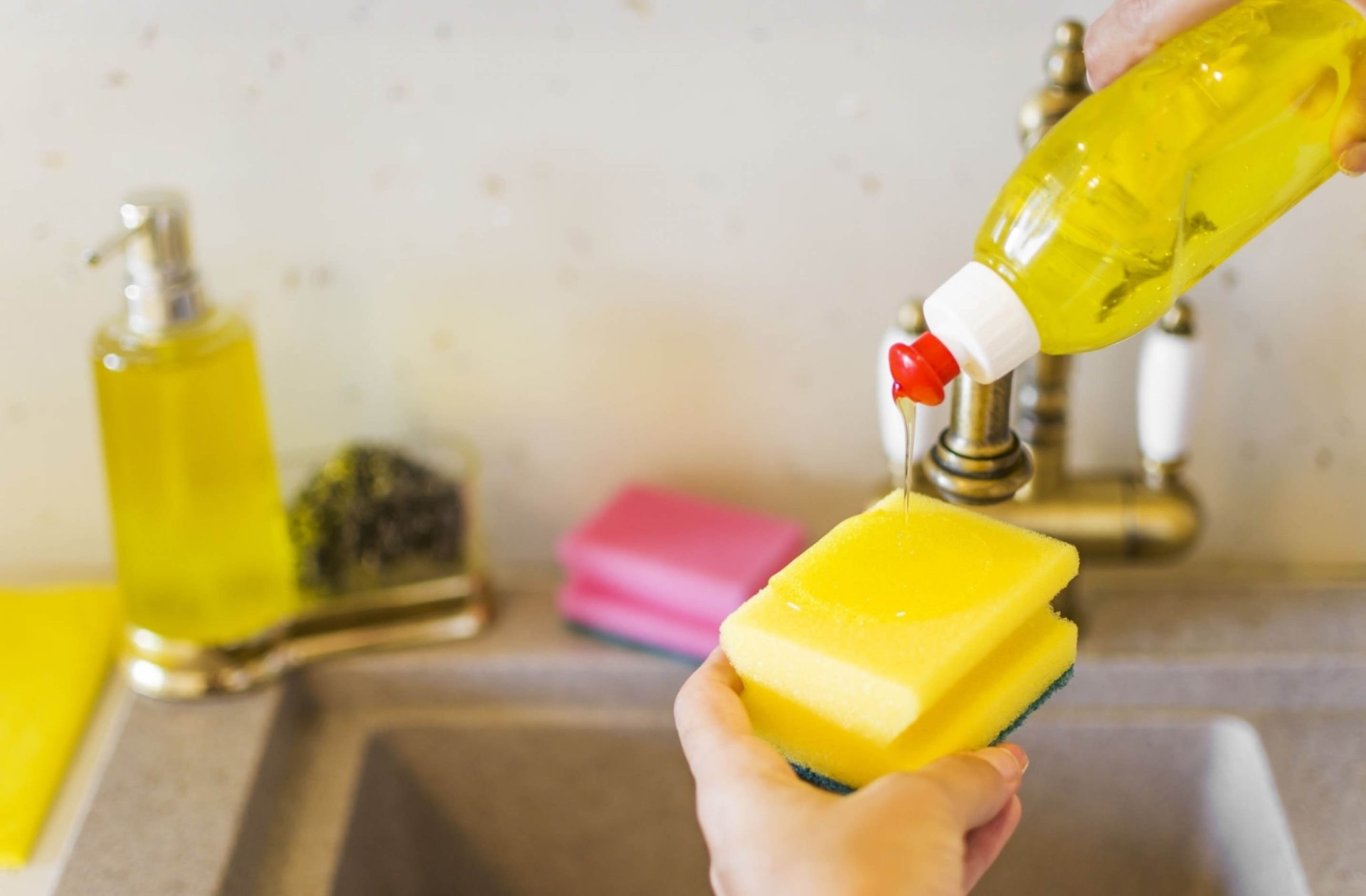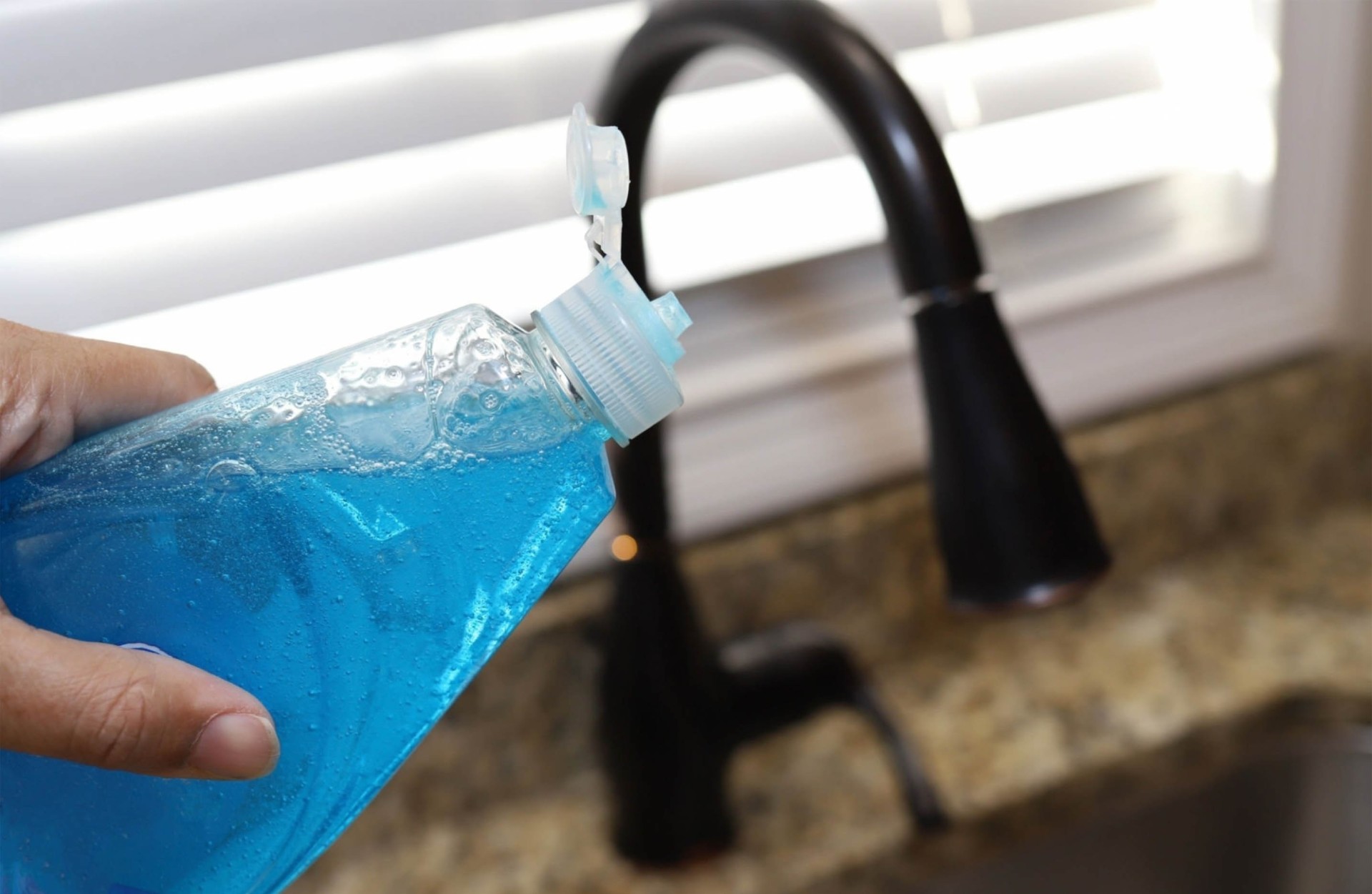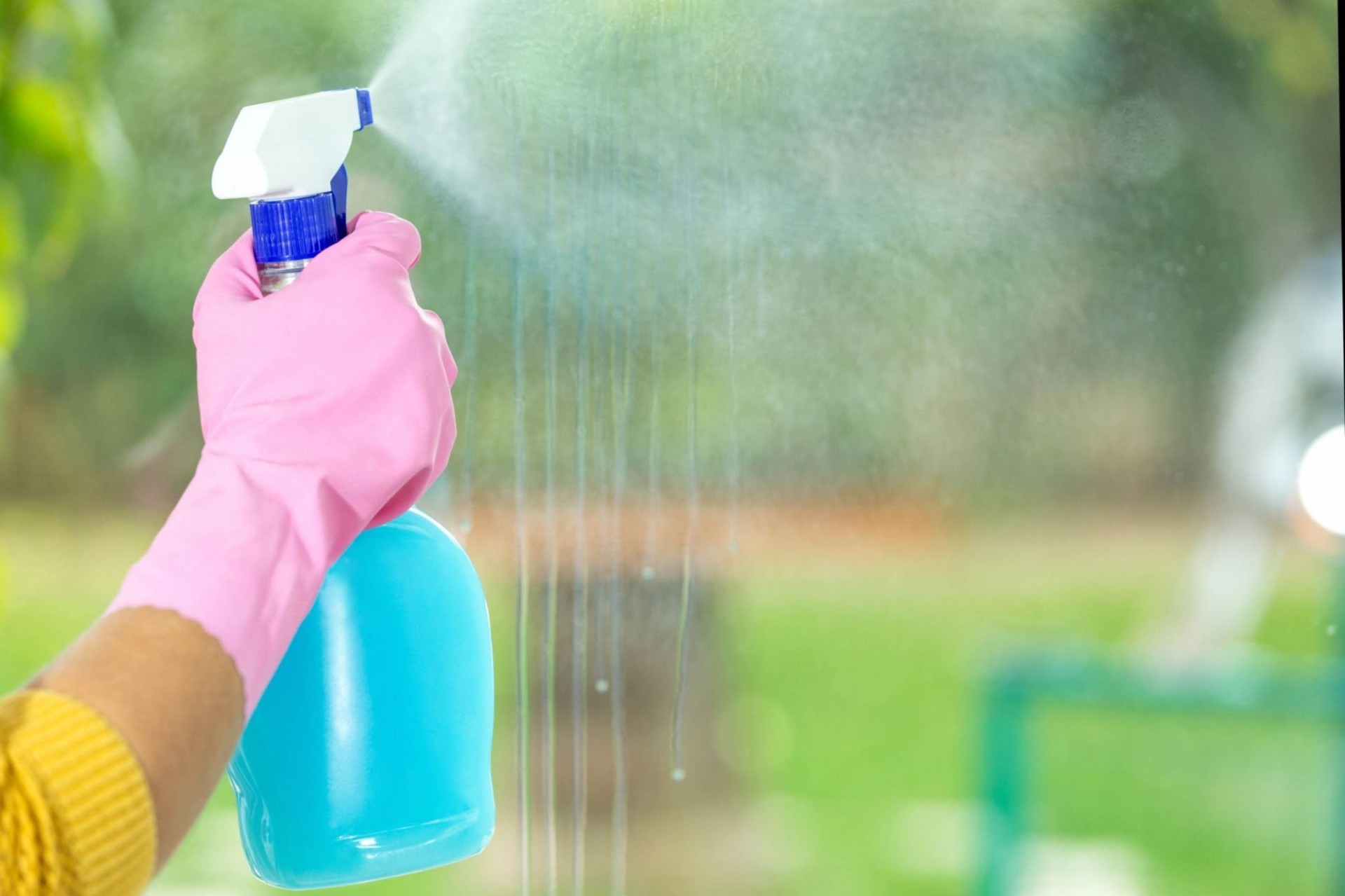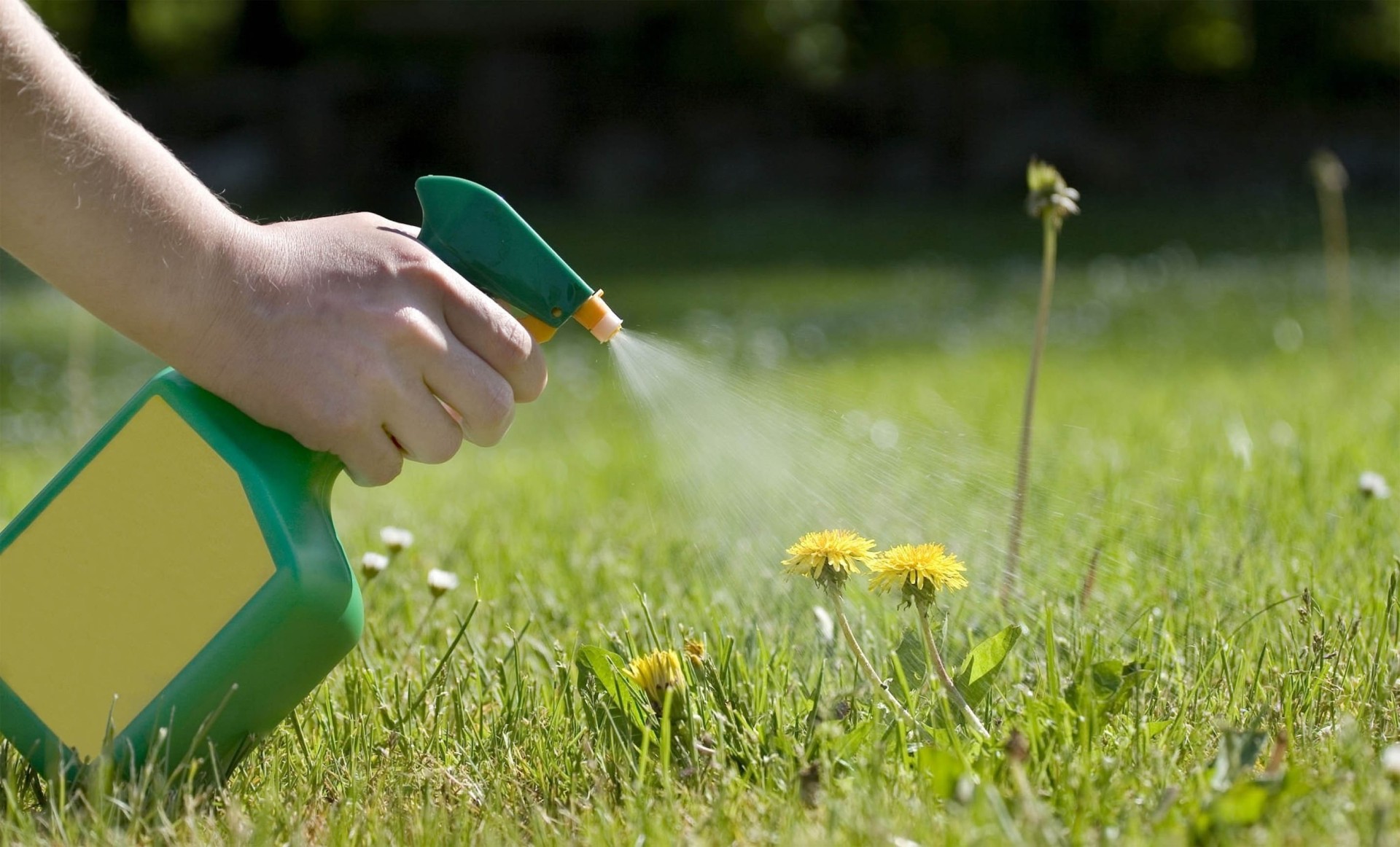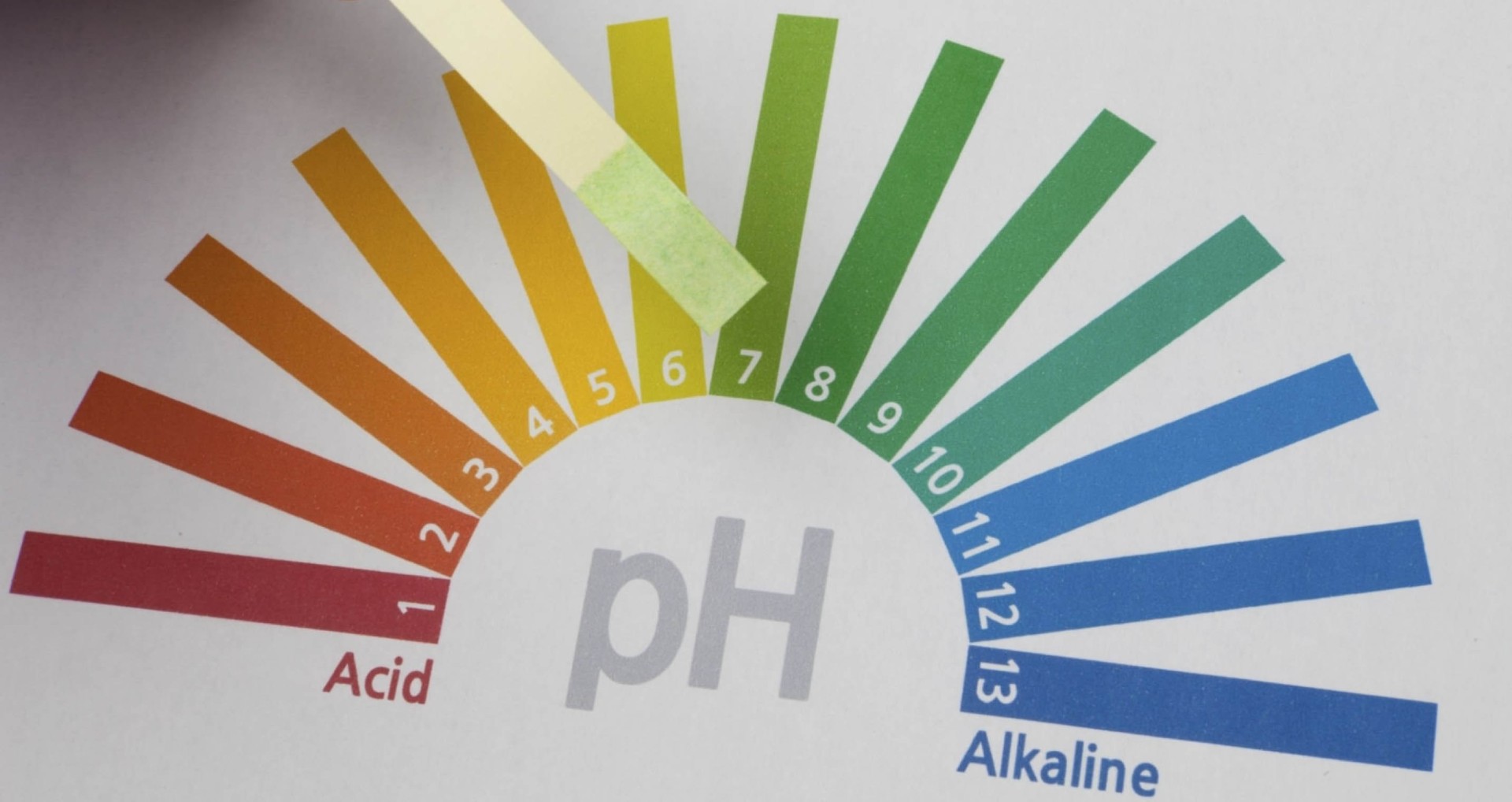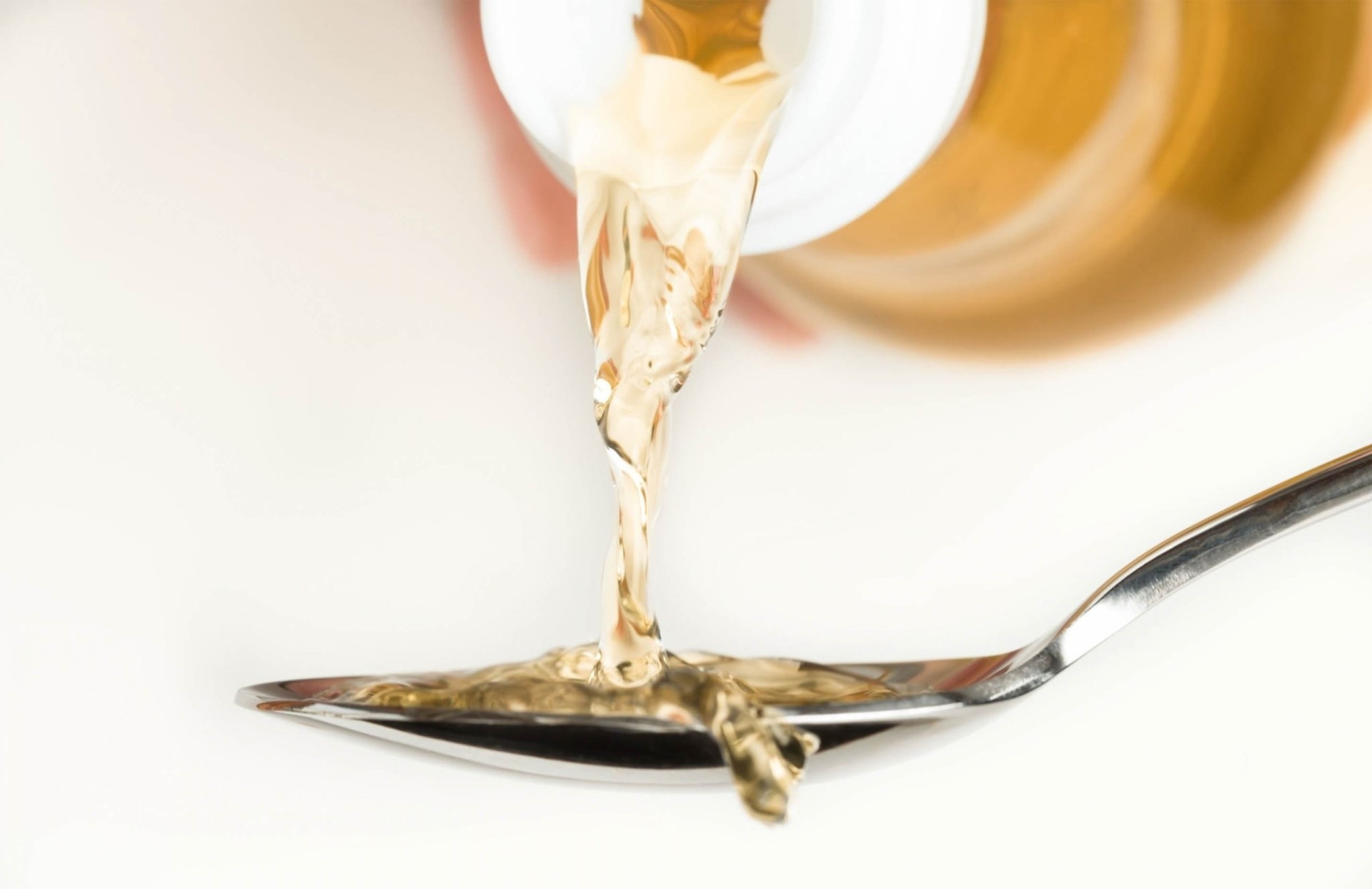Are you looking for a way to clean your glasses and dishes that don’t involve harsh chemicals? If so, you’re in luck! There are many natural solutions that you can try, such as using vinegar and dish soap.
Vinegar is a natural acid that can help clean your glass and dishes, while soap helps remove any residue that may be left behind. Now, the question is, can you mix Vinegar and dish soap? Yes, This combination is a perfect way to clean your dishes without using harsh chemicals.
Can You Mix Vinegar And Dish Soap?
Yes, you can mix vinegar and dish soap. As dish soap is Alkaline and Vinegar is acidic, they will neutralize each other to form a very effective and neutral cleaning solution after mixing.
How It Works When You Mix Vinegar and Dish Soap?
When mixing vinegar and dish soap, the two ingredients react to form a cleaning solution. Vinegar is an acidic liquid, while dish soap is an alkaline substance.
So, the reaction between the two substances neutralizes their pH levels so that they can work as a cleaning agent.
You may wonder, can you mix vinegar and dish soap to clean? Well, the combination of vinegar and dish soap may sound like a dangerous mixture, but it’s an effective alternative to harsh chemical cleaners when used correctly.
The basic function of vinegar and dish soap is different. Vinegar has powerful antibacterial properties. It is an acid with a 5% concentration made from ethylene that causes food spoilage.
On the other hand, the soap is really important because it gets all that gunk out of your dish. The vinegar will kill most germs and the soap will get oil, grease, etc., off.
The vinegar mixed with water also acts as a superb disinfectant, so it’s a great way to kill off germs that your dishwasher has left behind. You can also use vinegar and dish soap for hard water stain removal.
Some Eco Friendly Dish Soap List you can buy online.
How To Mix Vinegar And Dish Soap?
Mixing vinegar and dish soap is easy, no doubt. Mixing vinegar and dish soap can be an effective way to clean dirty glass surfaces.
A vinegar and dish soap mixture is a great alternative to glass cleaners. However, What happens if you mix vinegar and dish soap? The combination cuts through smudges and grime, leaving surfaces clean and streak-free.
Here are the process of mixing vinegar and dish soap
1: Mix a solution consisting of 2 cups of water and 1/2 cup of vinegar.
2: Add 2 tablespoons of liquid dish soap to the solution.
3: Now, mix the solution until it is combined.
When you are ready with the mixture, spray directly on the windows and mirrors to remove any dirt or grease; rinsing with clean water will leave windows sparkling clean.
What Can You Clean With The Mix Of Vinegar And Dish Soap
You can clean Many things with a mix of vinegar and dish soap. Here are a few:
1. Glasses and dishes –
Wipe down glasses and dishes with a solution of vinegar and dish soap. Rinse off the glass or dish cleanly and dry it off.
2. Faucets and taps –
You can use a solution of vinegar and dish soap to clean faucets and taps. Wet the faucet or tap, apply the solution, turn on the water, and rinse off the faucet or tap.
3. Countertops –
Clean countertops with a solution of vinegar and dish soap. Wipe down the surface with a cloth dipped in the solution, then rinse off the counter cleanly.
4. Windows –
You can even clean windows with a solution of vinegar and dish soap. Wet a cloth and wring it out; then wipe down the window, and leave it wet for a few minutes. Wipe it dry with another cloth.
5. Hard water stains –
Spray the vinegar and dish soap for hard water stains, wait for a few minutes, and then rub it in with a cloth. Repeat as necessary.
6. Mirrors –
Cleaning mirrors with a solution of vinegar and dish soap can be agood option. Apply the solution to a cloth, then wipe the mirror clean.
7. Sink –
Clean the sink with a mixture of vinegar and dish soap. Spray enough solution into the sink to cover all the surfaces, and then use a sponge to scrub the sink. Wipe down the sides of the sink with the solution. finally, rinse the sink.
8. Weeds –
Anyone can remove weeds and any unwanted plants by spraying them with a solution of water and dish soap. The active ingredients will kill off the unwanted plant. But you should take precautions to avoid harming the other plants in your backyard.
Is It Safe To Mix Dish Soap And Vinegar?
It is definitely safe to mix vinegar and dish soap for household cleaning tasks. Vinegar is relatively acidic, with a pH of between 2.0 and 3.0.
Hence, dish soap has a much higher pH level, typically between 8.7 and 9.3. When you combine the two substances, they neutralize each other to create a safe and effective cleaning solution with a neutral pH level.
You can use the solution on various household surfaces without creating any toxic fumes or other harmful chemicals that can harm your health.
Dish soap and vinegar are two common kitchen ingredients that you can use to create a powerful cleaning mixture. Mixing the two will result in a safe and efficient cleaning combination that can remove tough grease, grime, and many other contaminants from just about any surface.
Does Dish Soap Neutralize Vinegar?
Yes, dish soap will neutralize the vinegar. Vinegar is an acidic solution having a pH between 2.0 and 3.0. Dish soap is alkaline because it has a pH between 8.7 and 9.3. If an acidic solution and alkaline solution are mixed, they react between themselves and form a neutral solution.
Now, is it ok to mix dish soap and vinegar? Yes, if you mix Vinegar and dish soap, the acid from the vinegar combines with the alkaline properties of the dish soap to create a safe and effective cleaning solution.
This solution is pH balanced. So you can use it on various surfaces without creating any harmful fumes or other dangerous chemicals.
What Household Items React with Vinegar?
Many household items react with vinegar. This is because vinegar is an acidic solution and many household items are alkaline. These household items include-
· Washing machines
People sometimes use vinegar to remove stains from fabrics, as a fabric softener, and to remove bad odor. As vinegar is acidic, it can cause damage to the hoses and rubber seals of a washing machine and become responsible for causing leaks.
· Small Kitchen Appliances
Vinegar is safe to use on the glass and plastic surfaces of toasters, coffee makers, blenders, and other kitchen appliances. It cannot react with glass and plastic.
But you should not use vinegar on rubber and metal surfaces of kitchen appliances, including stainless steel. Vinegar can react with rubber and metal and corrode them.
· Knives
Most kitchen knives are made of stainless steel. Knives are very vulnerable to vinegar. If you clean your kitchen knife with vinegar, the vinegar will react with stainless steel and damage the knife’s finish. The reaction will cause the knife to lose its sharpness and leave the surface pitted. So, what is the point of having a knife without its sharpness? No way.
· Flooring
Vinegar is a culprit for the finish of floorings. Finish protects the wood of a floor, and if vinegar is used on flooring, it will dissolve the finish and make the floor look scratched, dull or cloudy.
· Electronic Screens
Vinegar is an acidic agent. It will cause corrosion on the surface of electronic screens, and the screen will lose its anti-glare properties. It can also lead to a less responsive touchscreen on smartphones and tablets.
· Countertops
Countertops are usually made from marble and limestones. If you use vinegar in these, the vinegar will etch and dull the stones. The countertop will lose its shine.
· Clothes iron
There is a protective coating inside most of the tanks of the steam irons. If you add vinegar to the tank, the vinegar will react with the protective coating and cause damage. After that, it will start corroding the metal surface inside the iron.
What Should You Not Mix with Vinegar?
Some things that you should avoid mixing with vinegar include hydrogen peroxide, baking soda, and bleach.
· Hydrogen Peroxide + vinegar
You are wrong if you think that mixing hydrogen peroxide and vinegar will improve their cleaning properties! Rather, doing this will create a hazardous situation. Peracetic acid will form if you combine hydrogen peroxide with vinegar.
Peracetic acid in high concentrations can harm your throat, nose, eyes, and skin. It is also a highly corrosive agent. So, never mix Hydrogen peroxide and vinegar to avoid an emergency.
· Baking soda + vinegar
The mixture of an acidic and basic solution forms salt and water. As vinegar is acidic and baking soda is a basic substance, mixing them will create sodium acetate salt and water. If the mixture is kept in a closed container, the baking soda will foam up with the vinegar. After foaming, the mixture will explode.
· Bleach + vinegar
You should never mix bleach with vinegar. Bleach has an unpleasant pungent odor. This unpleasant odor increases if you mix bleach with vinegar. This is because chloramine and chlorine vapors release after mixing them.
Chloramine and chlorine odor can cause watery eyes, chemical burn, breathing problems, and coughing.
FAQ
What happens when you mix dish soap and vinegar?
When you mix dish soap and vinegar, the acid in the vinegar combines with the alkaline properties of the dish soap to create a safe and effective cleaning solution. This solution is pH balanced, so you can use it on various surfaces without creating any harmful fumes or other dangerous chemicals.
Can I mix white vinegar and Dawn dish soap?
Yes, you can mix white vinegar and Dawn dish soap. It is an effective cleaner that you can use on dirty mirrors and windows. After applying the mixture, rinse the mirror and windows with clean water.
Verdict
Can you mix Vinegar and dish soap? Surely, you have the answer now.
The answer is yes! When you mix these two cleaning agents, you create a powerful mixture of effective cleaning solutions that can do wonders!
Not only can it clean the dishes effectively, but it can also remove tough food stains. In addition, this mixture is safe to use on various surfaces. You can also use it to clean your countertops, glassware, and more!

